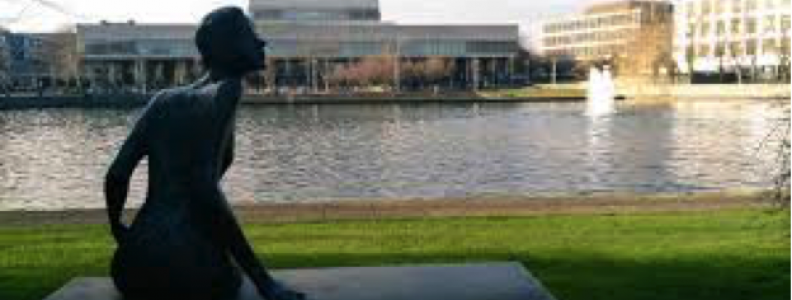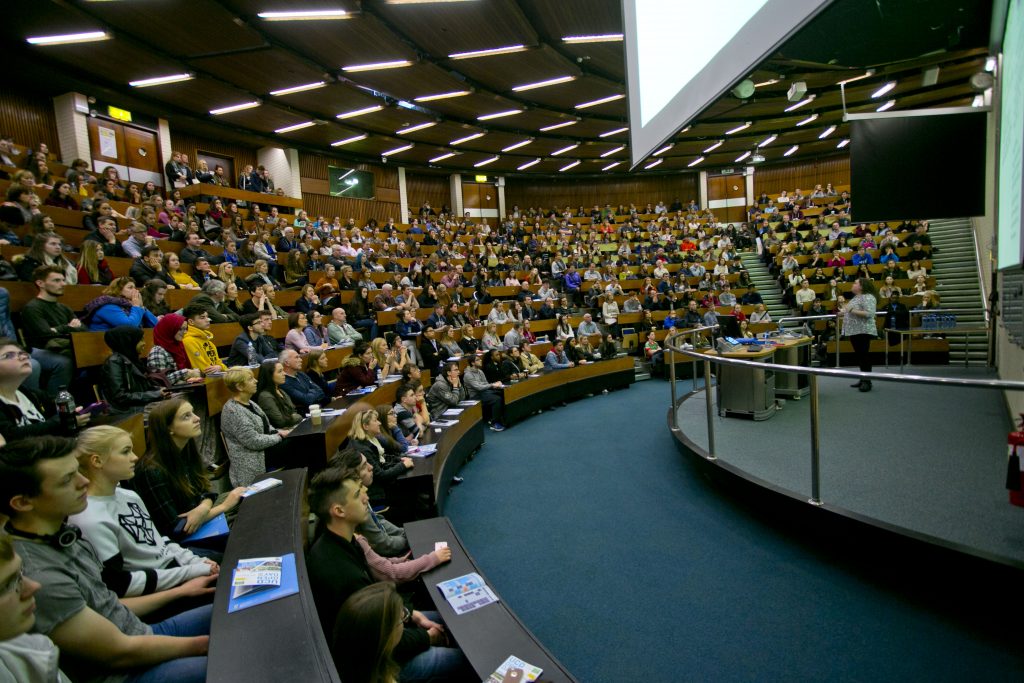Engineering student Orla takes a closer look at UCD’s Horizons programme and how it took her from studying Psychology, Creative Writing to Film Studies during her time in college.
Picking a course you want to do after secondary school is a challenging decision. And even when you’ve chosen the path that’s right for you, it can be almost as hard to decide where to do it.
In my case, I had settled on Engineering, which is a fairly standard degree offered by most third-level institutions in Ireland. However, it was difficult to distinguish between the courses offered by the different universities across Ireland. From my perspective, it seemed like none of them really stood out from the crowd. At least, that was before I heard about UCD’s Horizons programme.
Unlike other universities in Ireland, when you pick a course in UCD, you aren’t limited to taking subjects (“modules”) that are strictly related to your degree. Of the six modules you need to do per trimester, only five of them are compulsory. The sixth module, known as an “elective”, can be from any faculty in UCD, at any level.
Even though I was studying Engineering, I had the option of taking drastically different modules alongside my core subjects. So far, I’ve taken Film Style & Aesthetics, Applied Psychology and Creative Writing, which are about as far from physics and calculus as you can get!
And the amazing part is that, unlike other universities, UCD lets you count your electives towards your grades. So instead of being an extra burden to keep up in your spare time, these bonus skills can actually bring up your GPA! And you come out of college with just as valid a degree as people who never ventured outside their faculty.
Progressing from secondary school to university is a big change, and one of the biggest adjustments is going from taking a diverse range of subjects to specialising on a single degree. For some people, this might be an advantage; a lot of students can’t wait to drop maths and focus on languages, or vice versa.
But I’ve found that most people prefer to have a bit of a mix. As much as I enjoy the scientific aspect of my course, it can be refreshing to go from equations and calculators to movie clips and writing. “A change is as good as a rest”, as the saying goes!
The Horizon programme also helped satisfy my curiosity about other faculties. Filling in my CAO, I’d been torn between engineering and a psychology degree, and part of me wondered if I would regret my decision once I started college. Thankfully, taking arts electives made me realise that I’d made the right choice! Writing essays and navigating the library was manageable in small doses, but doing it full-time wouldn’t have suited me at all. I prefer solving equations and learning from lectures rather than books, which made engineering a much better fit for me.
Many people care about the career aspect of their degree, so they’ll be relieved to hear that taking modules outside your degree actually helps when you leave college. Having experience beyond your course can help set you apart from the crowd. A business graduate who can code, or a vet with strong writing skills, is going to be more impressive from an employer’s perspective.
And of course, the Horizons programme is completely optional. If you want to focus entirely on your chosen discipline, you can use your elective to learn more about a topic that came up in your degree. For example, I know people in engineering who used their elective to take up robotics, and got to apply the science they’d learned in their core subjects to build robots. However, the fact is that they had the choice, and can always choose to sample a new faculty the following trimester if they’re so inclined.
Students’ interests aren’t always limited exclusively to just the one faculty or subject; we all have a unique combination of likes and dislikes. Not only does UCD recognise this, but it gives its students the choice to explore these extra passions without detracting from their degree.







